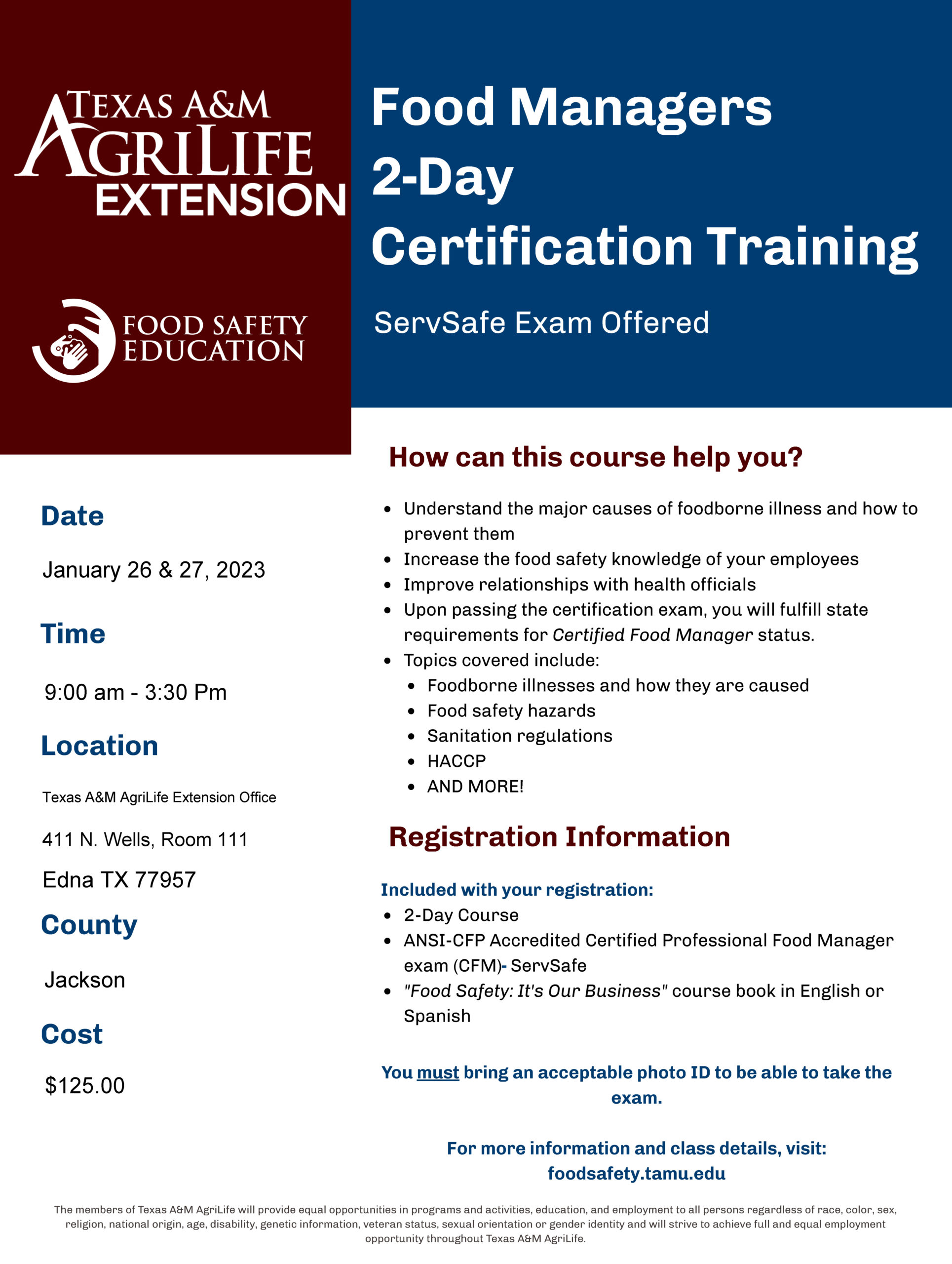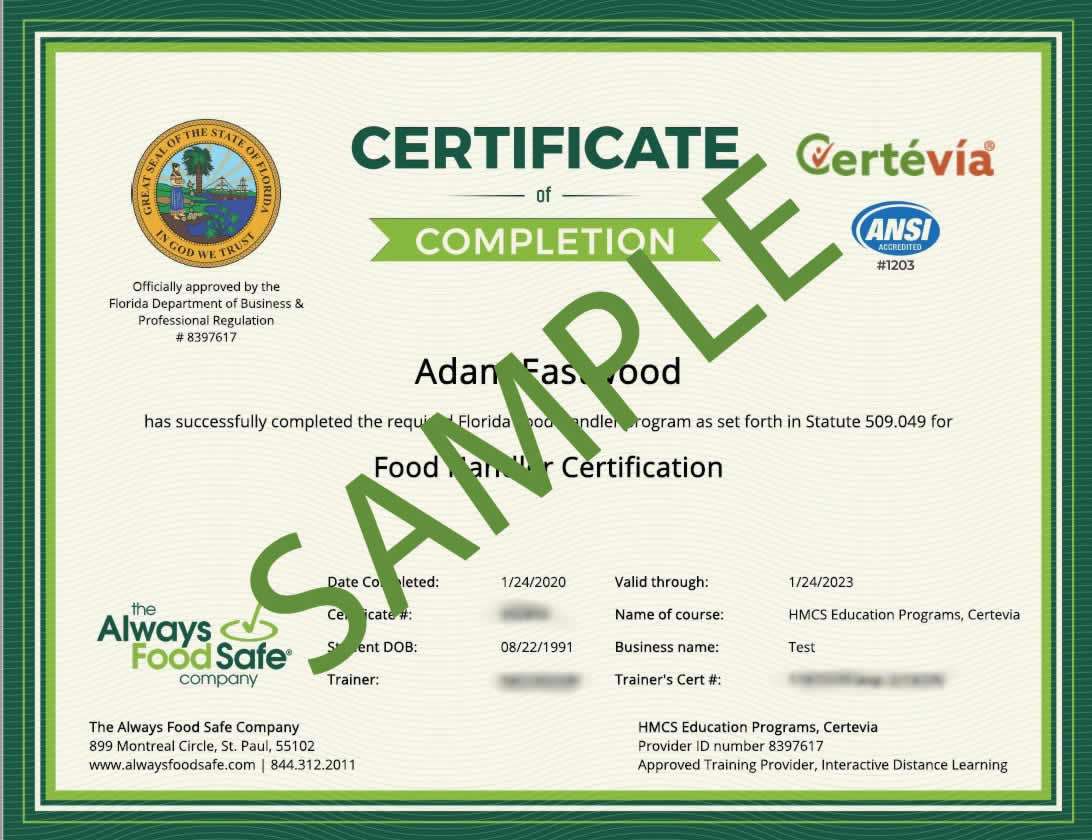Licensed Food Supervisor: The Trick to Safe and Compliant Workflow
The duty of a Qualified Food Supervisor (CFM) is increasingly identified as essential in maintaining certified and risk-free operations within the food service industry. Comprehending the complete scope of their contributions increases inquiries regarding the more comprehensive effects for organizations and consumer depend on in food safety practices.
Role of a Qualified Food Manager
The function of a Qualified Food Supervisor is crucial in making sure food safety and compliance within food solution facilities. These specialists are liable for managing all facets of food handling, prep work, and storage space, making sure that facilities abide by wellness laws and industry criteria. Their training equips them with the expertise to recognize potential risks, carry out appropriate food security practices, and maintain hygiene protocols.
Qualified Food Managers play a critical duty in training and supervising cooking area team, instilling a culture of security and compliance throughout the establishment. They carry out normal inspections to recognize locations that need improvement and ensure that rehabilitative actions are executed quickly - ServSafe Manager. Furthermore, they are entrusted with developing and enforcing typical operating treatments (SOPs) related to food security, which function as an overview for employees
Their knowledge reaches keeping track of food temperatures, preventing cross-contamination, and taking care of allergen controls, every one of which are vital to securing public health. Qualified Food Managers are usually the primary factor of contact throughout wellness evaluations, representing their facilities and resolving any type of conformity problems increased by wellness officials. Inevitably, their commitment to food security is essential for preserving customer count on and guarding the reputation of food service organizations.
Significance of Food Safety
Food safety is constantly a leading concern in the food solution industry, as it directly affects public wellness and customer self-confidence. Making certain that food is handled, prepared, and saved securely helps to stop foodborne diseases, which can lead to extreme wellness complications and even fatalities. The financial repercussions of foodborne outbreaks can be staggering, resulting in costly recalls, lawsuits, and significant damage to a business's reputation.
Furthermore, food safety and security practices cultivate a society of liability and professionalism within food establishments. When employees are trained in proper food handling techniques, they are extra most likely to follow safety and security procedures, which lessens the danger of contamination. This not only protects customers yet likewise improves operational performance and conformity with regional health and wellness regulations.
Customer recognition regarding food safety and security has actually enhanced considerably, leading to increased assumptions for openness and quality in food solution. Establishments that focus on food security are most likely to get customer trust fund and commitment, eventually adding to their long-term success. Investing in durable food safety procedures is not just a governing responsibility; it is a fundamental service strategy that profits both customers and food service operators alike.
Training and Qualification Refine
Understanding the training and accreditation process for food supervisors is crucial for keeping high standards of food security within any type of facility. The process normally starts with extensive training programs that cover crucial subjects such as foodborne ailments, proper food managing strategies, and sanitation techniques. ServSafe Manager. These programs can be supplied via various styles, consisting of on the internet training courses, in-person courses, or workshops, and are designed to equip food managers with the understanding necessary to avoid food security dangers
Upon conclusion of the training, prospects need to pass a certification examination, which examines their understanding of food security principles and regulations. The exam is typically administered by certified ServSafe Manager Certification organizations, ensuring that the accreditation is acknowledged and appreciated within the market.
When certified, food managers are needed to stay current with ongoing education and training to maintain their qualifications. This might consist of attending correspondence course or taking part in workshops that deal with new food safety and security techniques and laws. On the whole, a durable training and accreditation process not only enhances the abilities of food supervisors yet likewise contributes to the overall safety and security and compliance of food operations in any kind of facility.
Compliance With Regulations
Conformity with guidelines is an important element of a food manager's duties, as it makes sure that establishments follow local, state, and government food security standards. These guidelines are created to alleviate dangers associated with foodborne ailments and promote secure food dealing with methods. A qualified food supervisor (CFM) plays a pivotal function in translating and applying these criteria within their procedures.

CFMs have to additionally establish and implement surveillance systems to on a regular basis examine compliance with food safety and security methods. Eventually, effective conformity administration cultivates a culture of safety and accountability within food solution operations.

Advantages of Hiring CFMs
Employing qualified food supervisors (CFMs) provides substantial advantages for food service facilities looking for to enhance their operational effectiveness and safety requirements. CFMs have specialized expertise of food safety policies, hygiene practices, and danger monitoring, making certain compliance with government and neighborhood regulations. This knowledge assists lower the likelihood of offenses that can bring about momentary closures or costly fines.
Additionally, CFMs play a critical duty in training team, fostering a culture of food safety within the establishment. They implement standardized procedures, screen food dealing with methods, and carry out regular audits, considerably reducing the risk of foodborne diseases. This not only safeguards patrons yet also enhances the establishment's reputation.
Additionally, hiring CFMs can bring about enhanced operational performance. Their training allows staff to function better, minimizing waste and making best use of efficiency. Establishments with licensed food managers usually experience greater customer satisfaction, as trained employees are much better furnished to ensure high quality solution and food security.

Inevitably, investing in a licensed food supervisor is a financial investment in the long-term success and sustainability of a food service operation, creating a more secure environment for both consumers and employees.
Conclusion
In conclusion, the role of a Licensed Food Supervisor is essential in preserving compliant and risk-free food solution procedures. Via effective oversight Visit This Link of food managing techniques, recurring team training, and adherence to regulatory standards, CFMs play a crucial duty in mitigating foodborne health problem dangers. The financial investment in certified management not only improves operational effectiveness however likewise fosters a culture of responsibility, eventually profiting both the facility and its customers while promoting public health and safety and security.
The role of a Licensed Food Manager is essential in guaranteeing food security and compliance within food service facilities.Comprehending the training and accreditation process for food managers is crucial for keeping high criteria of food safety and security within any type of establishment. Overall, a durable training and qualification procedure not only enhances the abilities of food supervisors however also adds to the total safety and security and compliance of food operations in any kind of establishment.
Hiring licensed food managers (CFMs) supplies considerable advantages for food solution establishments seeking to boost their functional efficiency and safety and security requirements. Establishments with qualified food managers typically experience higher consumer fulfillment, as well-trained staff members are better geared up to make certain Homepage quality solution and food safety.